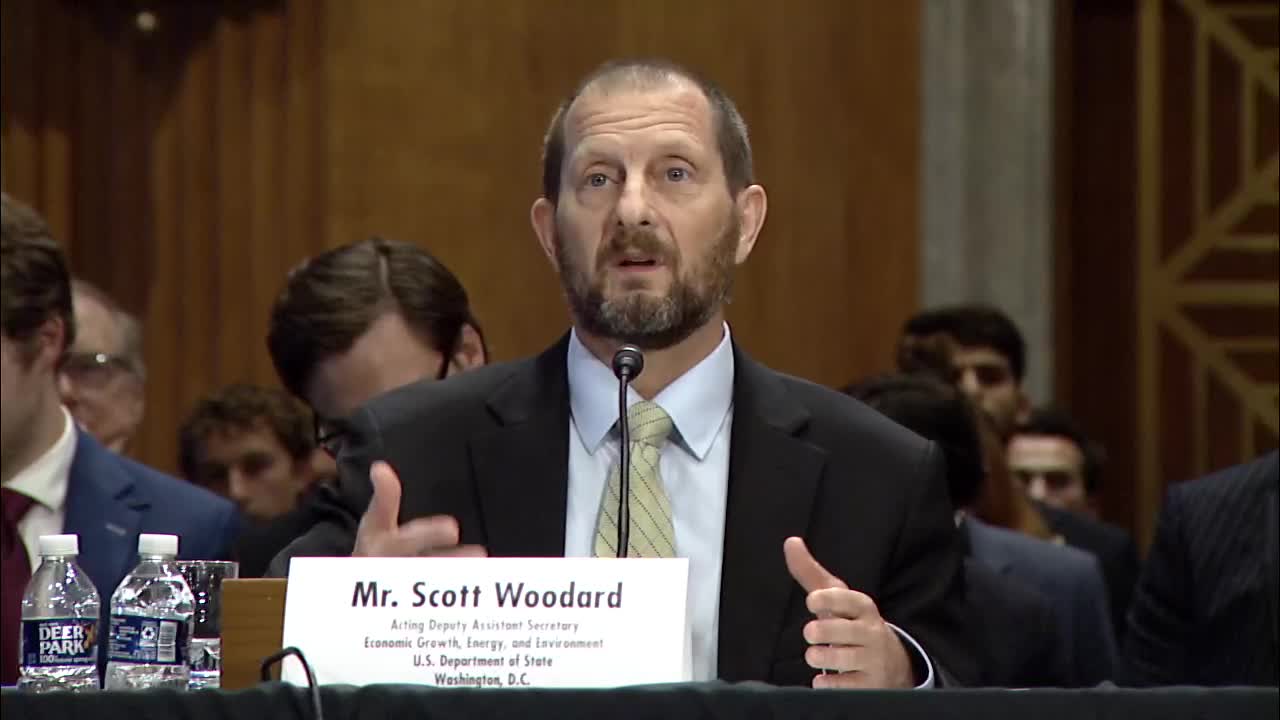Senators Discuss Urgent Need for Stronger US Diplomatic Engagement in African Mineral Supply Chains
July 30, 2025 | Foreign Relations: Senate Committee, Standing Committees - House & Senate, Congressional Hearings Compilation
This article was created by AI summarizing key points discussed. AI makes mistakes, so for full details and context, please refer to the video of the full meeting. Please report any errors so we can fix them. Report an error »

In a recent meeting of the U.S. Senate Committee on Finance, discussions centered on the critical importance of securing partnerships with African nations to enhance the United States' access to vital minerals. The meeting highlighted the urgent need for the U.S. to break free from monopolistic dependencies, particularly on China, for rare earth elements essential for various industries.
Ambassador Pratt emphasized the necessity of establishing agreements with African countries rich in rare earth minerals, particularly in South Africa and West Africa. He noted that these partnerships are crucial for ensuring a steady supply of feedstock to the U.S. while simultaneously developing domestic mining and refining capabilities. The urgency of this initiative is underscored by the geopolitical landscape, where China currently dominates the market for critical minerals.
Senators expressed concern over the current staffing levels within the Africa Bureau, which oversees U.S. diplomatic efforts in the region. With only two nominees for ambassadorships in a continent comprising 46 countries, there are worries about the U.S. ability to effectively compete with China's aggressive investments in Africa. The committee noted that China has pledged significant financial support for infrastructure projects across the continent, further solidifying its influence.
A key proposal discussed was the introduction of targeted sanctions or tariffs on Russian palladium imports to the U.S. This measure aims to restore American jobs and reinvigorate the domestic supply chain for palladium, which is currently reliant on Russian sources. Senators highlighted that swift action could potentially bring back hundreds of jobs in the mining sector.
Additionally, bipartisan legislation was introduced to establish a mineral security partnership, aimed at prioritizing diplomatic engagement to develop trusted supply chains for critical minerals. This initiative seeks to lessen U.S. dependence on China and enhance collaboration with African nations.
The meeting concluded with a call for increased diplomatic focus and resources dedicated to Africa, as the U.S. navigates a complex landscape of international competition for critical minerals. The discussions underscored the pressing need for strategic partnerships and a robust response to the challenges posed by foreign competitors.
Ambassador Pratt emphasized the necessity of establishing agreements with African countries rich in rare earth minerals, particularly in South Africa and West Africa. He noted that these partnerships are crucial for ensuring a steady supply of feedstock to the U.S. while simultaneously developing domestic mining and refining capabilities. The urgency of this initiative is underscored by the geopolitical landscape, where China currently dominates the market for critical minerals.
Senators expressed concern over the current staffing levels within the Africa Bureau, which oversees U.S. diplomatic efforts in the region. With only two nominees for ambassadorships in a continent comprising 46 countries, there are worries about the U.S. ability to effectively compete with China's aggressive investments in Africa. The committee noted that China has pledged significant financial support for infrastructure projects across the continent, further solidifying its influence.
A key proposal discussed was the introduction of targeted sanctions or tariffs on Russian palladium imports to the U.S. This measure aims to restore American jobs and reinvigorate the domestic supply chain for palladium, which is currently reliant on Russian sources. Senators highlighted that swift action could potentially bring back hundreds of jobs in the mining sector.
Additionally, bipartisan legislation was introduced to establish a mineral security partnership, aimed at prioritizing diplomatic engagement to develop trusted supply chains for critical minerals. This initiative seeks to lessen U.S. dependence on China and enhance collaboration with African nations.
The meeting concluded with a call for increased diplomatic focus and resources dedicated to Africa, as the U.S. navigates a complex landscape of international competition for critical minerals. The discussions underscored the pressing need for strategic partnerships and a robust response to the challenges posed by foreign competitors.
View full meeting
This article is based on a recent meeting—watch the full video and explore the complete transcript for deeper insights into the discussion.
View full meeting